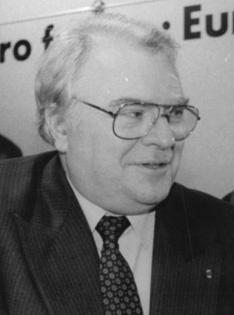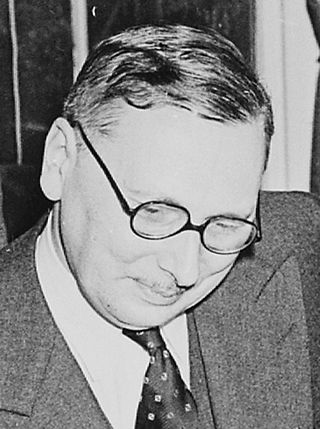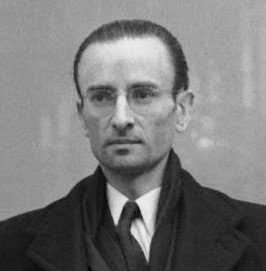Related Research Articles

West Germany (Westdeutschland) is the colloquial term used to indicate the Federal Republic of Germany between its formation on 23 May 1949 and the German reunification through the accession of East Germany on 3 October 1990. During the Cold War, the western portion of Germany and the associated territory of West Berlin were parts of the Western Bloc. West Germany was formed as a political entity during the Allied occupation of Germany after World War II, established from eleven states formed in the three Allied zones of occupation held by the United States, the United Kingdom, and France. The FRG's provisional capital was the city of Bonn, and the Cold War era country is retrospectively designated as the Bonn Republic.

The president of the Republic of Costa Rica is the head of state and head of government of Costa Rica. The president is currently elected in direct elections for a period of four years, which is not immediately renewable. Two vice presidents are elected in the same ticket with the president. The president appoints the Council of Ministers. Due to the abolition of the military of Costa Rica in 1948, the president is not a commander-in-chief, unlike the norm in most other countries, although the Constitution does describe him as commander-in-chief of the civil defense public forces.

Georges-Augustin Bidault was a French politician. During World War II, he was active in the French Resistance. After the war, he served as foreign minister and prime minister on several occasions. He joined the Organisation armée secrète; however he always denied his involvement.

Pierre Isaac Isidore Mendès France was a French politician who served as prime minister of France for eight months from 1954 to 1955. As a member of the Radical Party, he headed a government supported by a coalition of Gaullists (RPF), moderate socialists (UDSR), Christian democrats (MRP) and liberal-conservatives (CNIP). His main priority was ending the Indochina War, which had already cost 92,000 lives, with 114,000 wounded and 28,000 captured on the French side. Public opinion polls showed that, in February 1954, only 7% of the French people wanted to continue the fight to regain Indochina out of the hands of the Communists, led by Ho Chi Minh and his Viet Minh movement. At the 1954 Geneva Conference, Mendès France negotiated a deal that gave the Viet Minh control of Vietnam north of the seventeenth parallel, and allowed him to pull out all French forces. He is considered one of the most prominent statesmen of the French Fourth Republic.

Pierre Mauroy was a French Socialist politician who was Prime Minister of France from 1981 to 1984 under President François Mitterrand. Mauroy also served as Mayor of Lille from 1973 to 2001. At the time of his death Mauroy was the emeritus mayor of the city of Lille. He died from complications of lung cancer on 7 June 2013 at the age of 84. He is the namesake of Lille's new stadium, Stade Pierre-Mauroy.

René Pleven was a notable French politician of the Fourth Republic. A member of the Free French, he helped found the Democratic and Socialist Union of the Resistance (UDSR), a political party that was meant to be a successor to the wartime Resistance movement. He served as prime minister twice in the early 1950s, where his most notable contribution was the introduction of the Pleven Plan, which called for a European Defence Community between France, Italy, West Germany, and the Benelux countries.

Paul Bacon was a French politician.
The word banlieue, which is French for "suburb," does not necessarily refer to an environment of social disenfranchisement. Indeed, there exist many wealthy suburbs, such as Neuilly-sur-Seine and Versailles outside Paris. Nevertheless, the term banlieues has often been used to describe troubled suburban communities—those with high unemployment, high crime rates, and frequently, a high proportion of residents of foreign origin mainly from former French African colonies and therefore Berbers, Blacks, and Arabs.
Minimum wage law is the body of law which prohibits employers from hiring employees or workers for less than a given hourly, daily or monthly minimum wage. More than 90% of all countries have some kind of minimum wage legislation.

The fishing industry in Morocco is a leading foreign exchange earner, accounting for 2,84% of total exports. For a long time the industry has been an economic pillar for the country. The kingdom is considered the largest fish market in Africa, with an estimated total catch of 1,084,638 MT in 2001.
smag or variant, may refer to:
French labour law is the system of labour law operating in France.

The Minimum Wages Act 1948 is an Act of Parliament concerning Indian labour law that sets the minimum wages that must be paid to skilled and unskilled labours.

Guy Alcide Mollet was a French politician. He led the socialist French Section of the Workers' International (SFIO) from 1946 to 1969 and was the French Prime Minister from 1956 to 1957.

The Rocard government was the Government of France headed by Prime Minister Michel Rocard. It was originally formed on 10 May 1988 by the presidential decree of President François Mitterrand. It was composed of members from the Socialist Party. The second Rocard government was dissolved on 15 May 1991 when Édith Cresson was chosen by Mitterrand to form the next cabinet.

The Office des professions du Québec, abbreviated to abbreviation OPQ, is an autonomous and extrabudgetary governmental organization with a defined mandate by the Professional Code of Quebec. The OPQ reports to the Minister of Justice, who is, by Order in Council, the Minister responsible for the administration of professional legislation. The OPQ is a Quebec body responsible for ensuring that the professions are exercised and develop by offering the public a guarantee of competence and integrity.
The Conseil Interprofessionnel du Québec is a Canadian legal entity regrouping the professional orders in Quebec, which are represented by their president or another member designated by the board of directors of the order. This entity is legally constituted by the Professional Code of Quebec. The head office of the "Conseil interprofessionnel du Québec" (CIQ) is located at 550, rue Sherbrooke Ouest in Montreal.
References
- ↑ L'histoire mouvementée du SMIC Archived 2015-07-15 at the Wayback Machine
- ↑ La création de l'ancêtre du SMIC dans les archives du Figaro, lefigaro.fr, 11 février 2015
- ↑ (in French) Archived 2015-07-02 at the Wayback Machine , sur http://www.afriquinfos.com
- ↑ (in French) , sur http://www.leconomiste.com
- ↑ (in French) Archived 2015-07-15 at the Wayback Machine , sur http://www.lavieeco.com